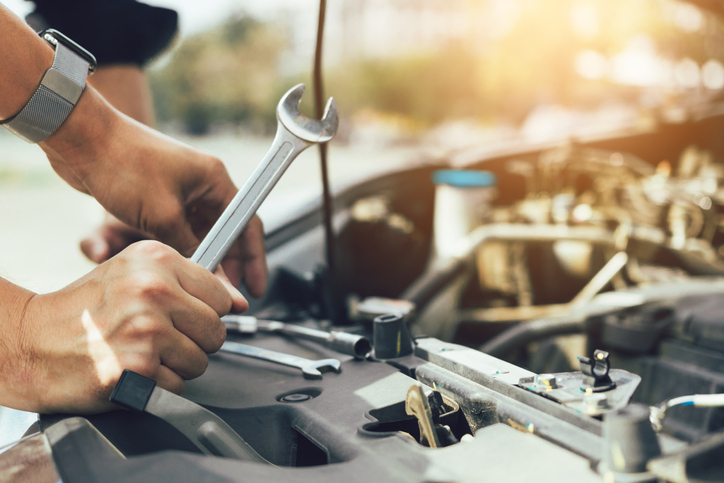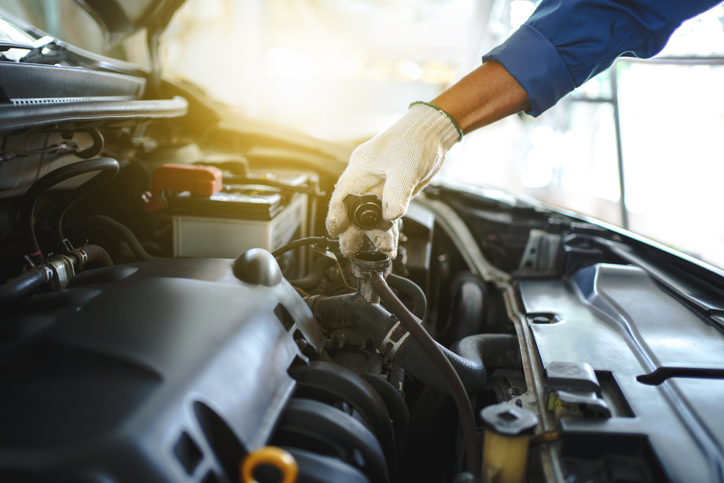
The summer heat can have adverse effects on the many moving parts of a vehicle, causing deterioration and possible failure if not maintained or inspected when issues arise. With the summer approaching, auto shops can expect an influx of business as clients want to ensure their cars are in top shape and ready for travel and road trips.
If you’re considering a career in auto mechanics, you might be wondering what to expect and how to prepare for the summer after graduation. Read on to see the 5 most common seasonal car maintenance services to ensure you have all the tools you need so your clients don’t hit a bump in the road!
1. Prepare the Shop for Oil Changes After Auto Mechanic School
The heat of the summer puts extra demands on a car, causing the engine to work harder. Motor oil not only provides effective lubrication but also absorbs heat, keeping an engine cool. Oil degrades over time and use, which is why it needs to be flushed out and replaced regularly.
It’s important to be aware of the different oil types and weights as well as the manufacturer’s recommendations, as using the wrong type of oil can cause damage to a car’s engine and may even invalidate its warranty.
2. Check Fluid Levels When The Weather Changes
In auto mechanic school, you’ll learn that extreme weather changes lead to an engine overworking and overheating, affecting all the fluids in a car’s engine.
Coolant, which doubles as antifreeze in the winter, is arguably the most important fluid next to oil as it keeps the engine cool while also lubricating the water pump.
Other fluids that are checked may include transmission fluid, brake fluid, power steering fluid, and even windshield washer fluid. Doing a comprehensive check and ensuring that these levels are satisfactory will ensure your clients that their car is summer-ready.

3. Air Conditioner Repairs Are Common in the Summer
You might encounter a rush of clients coming in after the first scorching hot day of the year, as they may not realize there’s an issue until they find themselves sweating in the driver’s seat.
The most common air conditioning repair service is simply topping up the refrigerant. However, there are other issues that can arise, such as refrigerant leaks, a broken cooling fan or condenser, blown fuses, and more.
Your car mechanics training will teach you to confidently perform diagnostics and identify and repair the root of any issue a client brings to you.
4. The Warm Weather Could Mean Tire Maintenance is Needed
Hot days with higher road temperatures can be extremely taxing on a car’s tires, and many clients will want to ensure they’re safe before any long road trips.
Automotive technicians first visually inspect tires for tread wear, bulges, or foreign objects in a tire. Next, making sure a tire is properly inflated is just as important as tire pressure is directly impacted by the temperature. Low pressure can cause overheating and the blowing out of tires.
Other services can include replacing or rotating the tires, evaluating the spare tire, and alignment checks.

5. Prepare for Battery Maintenance in the Summer
Especially true for the summer and long road trips, clients will want to ensure that their battery is in good working order and won’t quit on them halfway to their destination.
The number one cause of battery failure is heat, as it directly causes fluid loss and evaporation and the oxidation of battery components. As a trained professional, you will test the battery with a digital multimeter. You will also check its terminals for corrosion and make sure that the battery is securely mounted.
CATI offers a wide range of courses preparing students for a lucrative and exciting career in the automotive industry. If you have a passion for cars and desire a hands-on job that requires problem-solving and is continually evolving, becoming an automotive mechanic may be the perfect career for you.
Interested in learning more about our extensive training for mechanics?
Contact CATI today!
